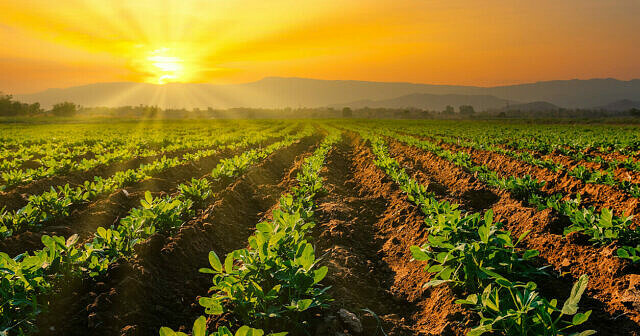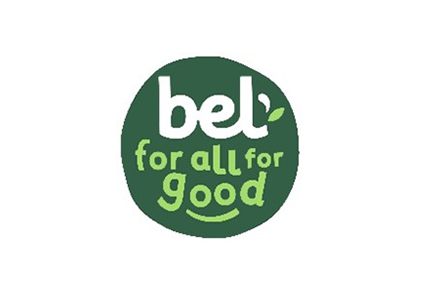Aligning the industry on climate smart agriculture
26th March 2024

Overview
Member interview with Geert Van Aelst of Südzucker and Marc Rakoczy of Suntory

In 2023, SAI Platform introduced an innovative Climate Smart Agriculture workstream, aiming to enhance the collective capabilities of members to achieve measurable GHG emissions mitigation in line with their Science Based Targets initiative (SBTi) commitments. This initiative was structured around two main components: the highly impactful Climate Conversations webinar series, which attracted over 200 community members and featured insights from respected sustainability leaders and the GHG Learning Journey.
The GHG Learning Journey was a participatory yearlong effort to align on the development and implementation of climate-smart initiatives within members’ value chains. Bringing together representatives from a diverse range of agri-food businesses, including notable names like Danone, Doehler, Heineken, Ingredion, Südzucker, Suntory, and Yara International, it underscored the value of peer to peer learning and collaborative exchanges in addressing GHG emissions and advancing the adoption of regenerative agriculture practices.
The key learning points from this collaborative effort have been instrumental in the creation of the recently released Regenerating Together Transition Support Guide, a resource aimed at facilitating members’ transition to more climate smart and regenerative agriculture.
To better understand the additional benefits for members who were actively involved in the GHG Learning Journey we asked Geert Van Aelst, Head of Sustainability at Südzucker Division Sugar and Marc Rakoczy, Director for Global Sustainable and Regenerative Agriculture at Suntory about their experience and insights.
What have been your biggest takeaways from the GHG Learning Journey in 2023?
Marc: The complexity within company value chains and the innovative approaches to regenerative agriculture have been eye-opening. The collaborative sharing of insights, challenges, and successes in a pre-competitive environment has fast-tracked our progress at Suntory as it has allowed us to identify and adopt best practices effectively. The open and cooperative spirit of the workstream has been a critical factor in facilitating real-world application of our learnings from the exercise.
Geert: Engaging in peer-to-peer learning, which offered tangible insights and fostered relevant discussions about various crops, has been hugely beneficial. It enabled us to integrate diverse external perspectives with our internal knowledge. This learning journey, coupled with the webinar series, provided a wealth of inspiration and valuable resources, highlighting the importance of having real-time exchanges and strategic discussions in a non-competitive setting.
What has been a significant learning from your organisation’s climate journey this year?
Marc: The eagerness and readiness of our grower partners to adopt meaningful changes have been particularly striking. Their approachability and willingness to collaborate have highlighted the need for an open-minded and co-designed approach, emphasising the critical role of adaptability and farmer engagement in our sustainability efforts.
Geert: The discussions on emissions—both direct and indirect—have shed light on the complexities of interpreting standards and the importance of clear guidelines. Gaining a deeper understanding of the SBTi requirements and the nuanced differences in emission sources has been essential for refining our approach.
What is a key challenge in your current or next phase of the climate journey?
Marc: One of the main challenges is managing the many different approaches and ensuring consistency and connectivity amongst them. The realisation that we are collectively navigating this journey, without a predefined path, underscores the need for a unified strategy towards sustainable and regenerative agriculture.
Geert: Convincing farmers of the benefits of climate-smart and regenerative agriculture practices, especially under the looming challenges of climate change and shifting regulations, remains a daunting task. It’s essential to communicate the value of these practices beyond immediate financial incentives, focusing on the broader implications for sustainability and regulatory compliance.
What opportunities do you see for the SAI Platform community in addressing these challenges?
Marc: SAI Platform is uniquely positioned to facilitate a collaborative approach that accelerates the transition to regenerative agriculture across individual supply chains. By harmonising efforts at both the farm and landscape levels, the community can develop integrated solutions that benefit all stakeholders and overcome obstacles related to consistency and connectivity.
Geert: The community can lead the way in standardising frameworks and establishing a common language across the agricultural value chain, making standards more accessible and actionable. Through initiatives like the Climate Smart Agriculture workstream and the Regenerating Together Programme, SAI Platform is laying the groundwork with common definitions and clearer communication. This will be essential for aligning the industry and leading the transition to climate-smart and regenerative agriculture.


